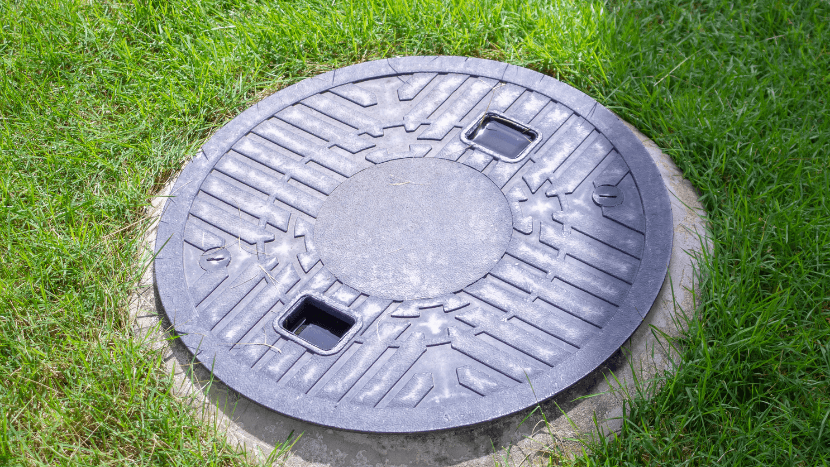ABOUT THE AUTHOR
Max Rose
Max Rose is the owner of Four Seasons Plumbing, a plumbing company in Asheville, North Carolina.

Do all houses have septic tanks? The answer to that is no; many rely on sewer systems for waste removal through their plumbing.
When you build a house, do you get to choose between septic and sewer systems? The answer to that is probably not. That depends on the area and its regulations and infrastructure; rural areas tend to have septic while urban areas usually have sewers.
You do, however, get to choose whether to buy a house with a septic or sewer system. To do that, you’ll need to know the differences between the two, how they function, and what the pros and cons are of each.
This article is about all things septic vs. sewer – if you find yourself asking questions afterward, just contact us at Four Seasons Plumbing! We’re an Asheville-based family-owned business serving all the plumbing needs of our beautiful mountain region.
A septic system collects and treats your wastewater on the site. There’s a septic tank that the plumbing directs wastewater to, and it’s usually buried underground. As the homeowner, you’re responsible for the costs of installation and maintenance.
Inside the septic tank, solid biodegradable waste breaks down. However, the septic tank will need to be drained from time to time; how often really depends on the size of the tank and how much use it gets.
Maintenance and repairs can be tricky and messy, and both are best left to experienced, certified pros like those at Four Seasons Plumbing.
One of the biggest advantages of septic systems is that when maintained properly, they’re much friendlier for the environment than sewer systems are. That’s because they use less infrastructure and energy and they usually don’t use chemicals to remove pollutants.
Other advantages of septic systems include the following:
The cons of septic systems include the following:
With a sewer system, your plumbing directs wastewater from your property and into municipal drainage systems. From there, the wastewater goes to a central treatment facility. The government operates and maintains the off-property parts of the system through taxes and fees.
If the plumbing on your property’s sewage system needs maintenance, repairs, or replacement, trust this difficult work to the pros at Four Seasons Plumbing.
Over time, sewer systems tend to cost the homeowner less since it’s the city that pays for and maintains the off-site infrastructure, though the initial costs of installing a septic system can be cheaper. Here are other pros of sewer systems:
Now here are some disadvantages of sewer systems:
There’s really not a clear answer to that question. There are lots of factors that come into play when answering this question. You’ll have to weigh the pros and cons of each when you look at where to live, and if you’re set on either the city or the country, you may not even have a choice of system. But if you do have a choice, this guide should help.
And if you have more questions or your system needs any kind of service, call Four Seasons Plumbing for the best Asheville septic and sewer service available at 828-216-3894!
ABOUT THE AUTHOR
Max Rose is the owner of Four Seasons Plumbing, a plumbing company in Asheville, North Carolina.